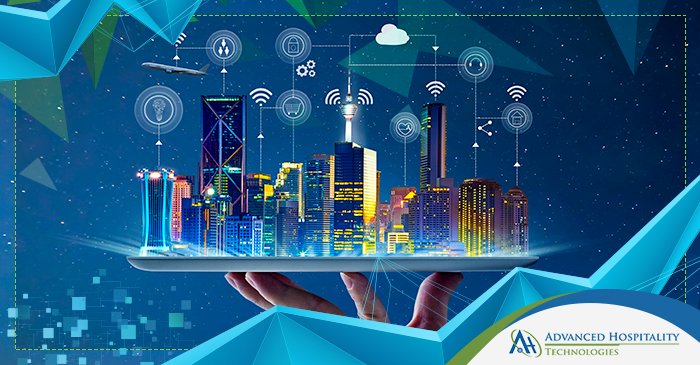Professionals and academics now agree that the return to the pre-Coronavirus world is off the cards. As consequences appear in the form of hotel closures and almost no travelers to drive demand, hotel owners should focus on reinventing their hotels for a post-Coronavirus world.
Hotel owners should remember that the global hospitality industry has been through similar threats before. It was the SARS outbreak in 2003 that shook hospitality with close to $50 billion in losses, but a swift recovery was made with strategic improvisation.
Reinventing the hotel business after the coronavirus may not be easy but as Bogdan Romashko mentions in his article:
“The truth is the pandemic is temporary and shall pass. Thus, we should continue to plan for the future, as well as take steps to reduce long-term damage from coronavirus and drive faster recovery.”
One of the most significant strategies to reinvent hotel businesses being identified by many hoteliers is the increase in digital marketing & branding budgets. Creating a strong online identity and staying connected with guests through digital channels will be a prerequisite in a post-coronavirus world. Alisa Voitika writer in her Trip Tease article:
“Hotels that spend significantly more on marketing in the downturn can get 18.5% higher RevPAR compared to hotels that cut their marketing spend. Whilst all hotels in crisis can expect lower occupancy, data shows that there is a strong positive relationship between marketing expenditures and performance in times of crisis.
Investing your digital marketing budget in revenue drivers as metasearch and retargeting can help you achieve a payoff not only in the tough times but also in the long term.”
Room rates remain a major concern for hoteliers across the USA and are another strategy that must be acted upon even before properties reopen. The pricing strategy for hotels will be a tough pill to swallow since many professionals are recommending against it.
Skift research in their recent article also mentions that most experts are recommending that hotels should resist cutting their future rates. Dan Skodol, a hospitality and travel industry revenue management, pricing, and analytics expert at Cendyn commented for Skift:
“Studies have shown that hotels that are the fastest to drop their rates and who drop their rates the deepest can be the last ones to recover when demand comes back…”
Sunish Sadasivan, Hotel Hero and Vice President of E-Commerce & Revenue Management at Chroma Hospitality, had something similar to say on adjusted room rates:
“I personally don’t believe in reducing prices to attract business in times of crisis,” … “In the 2008 Financial crisis, we panicked and dropped our rates significantly. When the time came to analyze results, we found that we lost in terms of RevPAR compared to some of the competitors who stuck to their rates.”
Technology applications will be a major driver that will contribute to the reinvigoration of the hotel industry. The Coronavirus has posed several restrictions for hospitality, as Rudy Tauscher, general manager of the Four Seasons New York City puts it:
“We’re at the forefront of the hospitality world’s ‘new normal.'”
We now have almost no touchpoints in the entire hotel, which is completely against a hotel’s nature of being hands-on and kind,” Tauscher said. “We used to be known for the human touch — but now we’re all about no touch at all.
Check-ins and check-outs are performed virtually, with no human-to-human contact. Elevator rides are limited to one guest per car.”
Many hotels are increasingly employing robotics technology to remove the human element from the process. While this does remove the caring human treatment from the process, it brings about a feeling of safety among guests.
Dr. Tracy Xu, Lecturer of Hospitality at The University of Surrey (School of Hospitality and Tourism Management) mentions in her recent research paper “Could hotel service robots help the hospitality industry after COVID-19?” :
“Application of service robots in the hotel industry is on the rise. With the added factor of a need to reassure potential guests that their stays will be compatible with minimized social contact and human interaction, this process could be accelerated.
During the lockdown period, it is likely that hotel managers will be planning for a ‘fresh start’ in the recovery and rebuilding period after the social isolation restrictions have been lifted and this is predicted to have a positive stimulus on the adoption of service robots.”
Technology is also assisting hotels to speed up their check-in and onboarding process with automated kiosks and intuitive mobile apps. This simple tech will allow guests a safer experience when in hotels, whereas hoteliers will be required to actively stay connected with them through these technologies.
Conclusion
Reinventing hotels will become more stringent as more SOPs are enacted to ensure the safety of guests and curb the spread of COVID19. While there are many strategies that hotels can work on, prioritizing on the basics will remain paramount.
We hope you enjoyed this edition of our blog, until next time, see you again soon.
Advanced Hospitality Technologies is a leader in Hospitality Technologies. We have an award winning benchmark for providing affordable, reliable and most advanced hospitality Technology Solutions.




